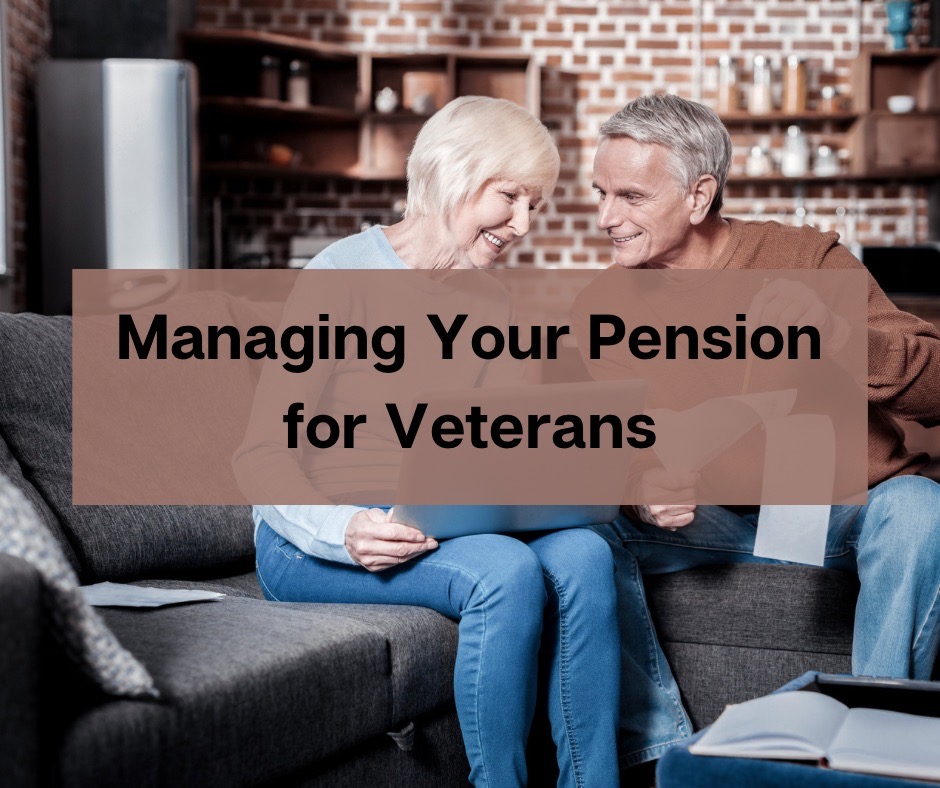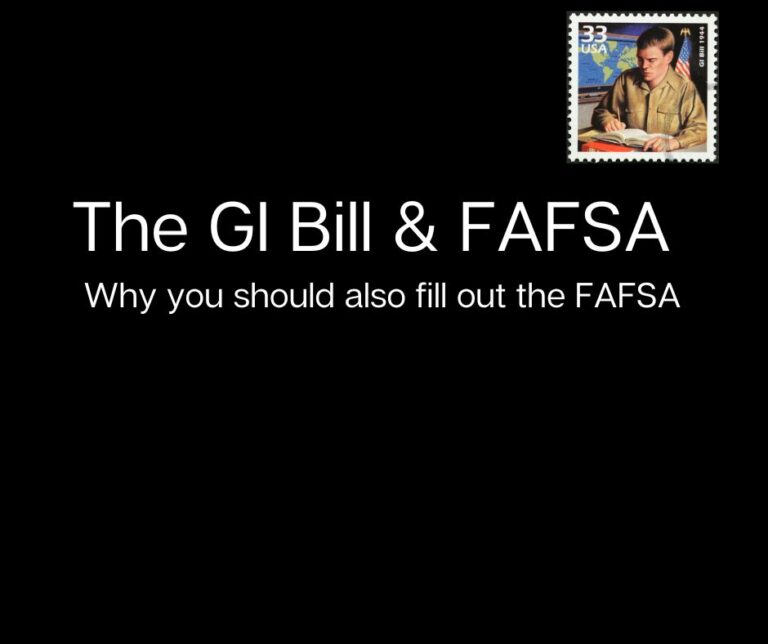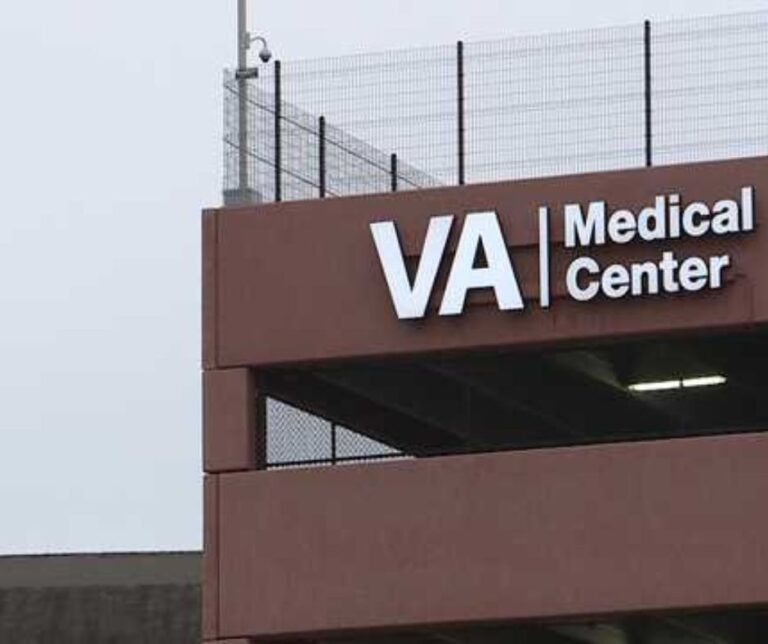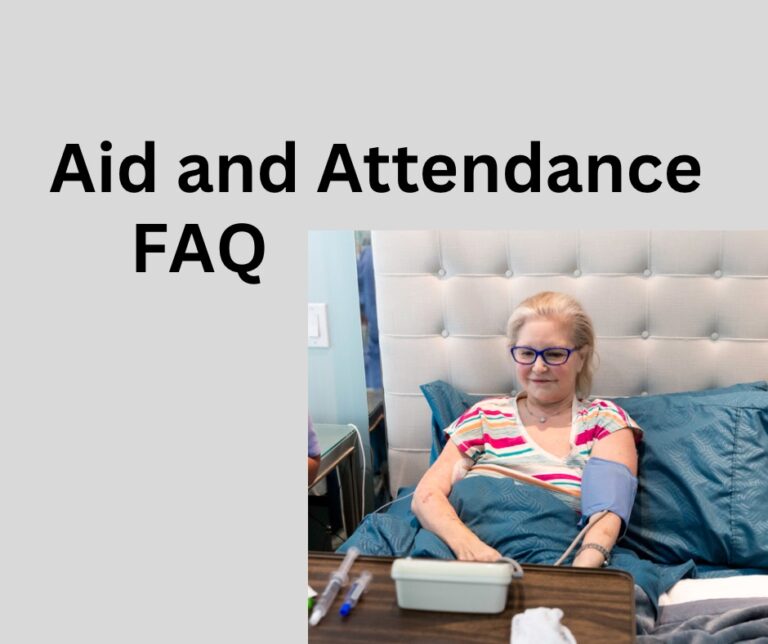Managing Your Pension for Veterans
There are many circumstances to be concerned with regarding a VA Pension. Veterans or surviving spouses often do not know what to report to the VA when they are receiving a Pension. There are cases in which even Lawyers have given advice to Veterans or other beneficiaries which has turned out badly for the Veteran.
Some of the questions that come up include:
- I moved nursing homes. Do I need to report that to the VA? Will my pension change?
- The lawyer said to sell my house (land/car/stocks). What do I do?
- My son/daughter moved me in with them. Will that change my pension?
Let’s look at what the Pension program is, what it is for, and see if we can answer some of these.
VA Pension
The VA has two major disability benefit programs. The first is service-connected disability compensation and the second is non-service connected disability pension. Service connected disability is the deciding factor between the two programs.
The VA Pension program is for Veterans who are disabled, but the disability is not service-connected. Therefore, any disability is admissible under the VA Pension program. The Veteran does not have to prove service-connection.
In order to file for a Pension, the Veteran must meet certain requirements.
- The Veteran was discharged under conditions other than dishonorable.
- The Veteran had to have served during a VA recognized war time period. Their service must have included either:
- 90 days during one or more periods of war
- 90 or more consecutive days with at least one during a period of war
- At least one day in a period of war and was discharged for a service-connected disability
In addition:
- Veteran must have a limited income and net worth that do not provide a means of living
- Veteran must be permanent and totally disabled OR 65 years old or older
- Permanent and Total disability not due to willful misconduct
Based on Need
The important thing to know about the Pension program is that it’s based upon need. “Need” is based on countable income and net worth, according to the VA’s standard. Countable income generally means all income of any kind that comes in to the Veteran and their spouse. However, there are medical based expenses which the VA may deduct from this countable income amount. Note that according to the VA, you may only deduct non-reimbursed medical expenses above 5% of your MAPR. This means that if you are a Veteran with no dependents, you may deduct non-reimbursed medical expenses for the year that are over $737 (5% of MAPR $14,753).
The VA will periodically verify medical expenses claimed by the beneficiary. In that case, the claimants will need to be able to send provider proof of the medical expenses they are claiming.
In addition, the VA has instituted a 3-year look back period when a Veteran files for a pension. This lookback period is to review any transfers of assets at less than fair market value in order to reduce net worth.
MAPR
The Maximum Annual Pension Rate (MAPR, reproduced below for 2022) is the maximum amount of pension that the VA will pay. It is based on number of dependents. IF their countable income is below the MAPR, the VA will award a pension to raise the Veteran’s income up to the MAPR, but not above it.
As an example, suppose a Veteran receives Social Security of $700 each month. They do not have enough non-reimbursed medical expenses to count. This income yields a yearly income of $8400 a year. In such a case, if the Veteran meets all of the requirements to receive a pension, the VA would award $6,353 for the year. Dividing this amount by 12 gives $529.41 a month that the Veteran will receive as a pension.
Special Monthly Pension Amounts (2022)
Below are the pension rates for 2022.
| Veteran with No Dependents | MAPR |
| You don’t qualify for Housebound or Aid and Attendance | 14,753 |
| You qualify for Housebound benefits | 18,029 |
| You qualify for Aid and Attendance | 24,610 |
| Veteran with at least 1 dependent | MAPR |
| You don’t qualify for Housebound or Aid and Attendance | 19,320 |
| You qualify for Housebound benefits | 22,596 |
| You qualify for Aid and Attendance | 29,175 |
Special monthly pension is awarded if the Veteran qualifies for Housebound benefits or Aid and Attendance benefits.
Housebound Benefits
There are two ways for Veterans to usually prove entitlement to Housebound benefits.
- A Veteran with a single permanent disability that is totaling disabling and rated at 100% under the VA Rating schedule (even if it is not service connected) AND who is substantially confined to his house and the immediate premises, will be eligible for a VA Pension.
- If the Veteran has a single permanent disability that is totally disabling and rated at 100% under the VA Rating schedule (even if it is not service connected) AND they have additional disabilities rated together at least 60%, they are eligible for a Pension even if they are not actually Housebound.
Aid and Attendance
In order to qualify for Aid and Attendance, the Veteran must be disabled to the point that they require the help of another person simply to perform the functions required by regular life. These include eating, bathing, dressing, moving from bed to chair, or using the toilet. The regulation is specific in saying that the Veteran must need regular aid and attendance, not necessarily constant aid and attendance.
Qualifications of MAPR
As already stated, the VA Pension is a needs-based program. This means that, even if a Veteran were to qualify under all of the other requirements, if their countable income exceeds the Maximum Annual Pension Rate (MAPR), the VA will deny their claim for a pension.
The VA will also determine the claimant’s net worth, taking into account the claimant, their spouse, and any dependent children. This includes any real and personal property except for the primary dwelling place and personal effects which would be reasonable for the claimant’s reasonable lifestyle. The VA will take anything more into account to determine the net worth. and if the net worth is excessive the VA will generally not award pension. Currently the net worth limit is $138,489.
Verification of Eligibility
Beneficiaries should always report any changes in income and/or net worth to the VA as soon as possible. This is because changes in income could (and probably will) make a difference in the amount of Pension which the Veteran should receive.
As of 2012 the VA no longer requires pension beneficiaries to file an Eligibility Verification Report every year in order to verify their continued eligibility to receive a pension. However, in 2016 the VA began to verify income with the IRS and the SSA.
Questions
The following are some questions that come up about pensions.
I moved from one assisted living facility to another. Do I need to report this to the VA since I am already receiving a pension?
Yes, you need to report any move to the VA. Even if you are paying the exact same amount to the new facility, you will need to notify the VA of the new address and furnish proof of the amount you are paying.
I plan to file for a VA pension next year. My lawyer said to sell my house/land/car/stocks to my children so they won’t count in my net worth. What do I do?
The VA has instituted a 3-year look-back period. If a Veteran disposes of any assets in the three years prior to filing it needs to be sold for a fair market value. The VA did this to prevent Veterans from creating entitlement to a pension by transferring assets for less than fair market value. IF the VA finds this has been done, the VA will assess a penalty period of non-entitlement (not to exceed 5 years).
My child moved me in with them. Will that affect my pension? Do I need to report it to the VA?
Yes, that will most likely affect your pension and you definitely need to report it to the VA. In general, the VA figures pension based on countable income for all adult inhabitants of the household. The only time the VA may not consider the additional income is if the Veteran makes a statement that they are not being supported financially by their children in any way other than providing a place to live.
My Aunt passed away and left me a $15,000 inheritance. Do I need to report that to the VA?
Yes. The VA has three classifications of income. These include nonrecurring income, recurring income, and irregular income. The VA would count the inheritance as nonrecurring income. They count nonrecurring income for the 12 months from the first day of the month AFTER the month in which the income was received. In other words, for the following year the Income for VA Purposes (IVAP) for the Veteran will be increased by $15,000.
Finally, do not attempt to hide income from the VA. We add this because of past experience. As stated previously, the VA is working with the SSA and IRS for verification of income. If the VA finds that income has not been reported, it can result in owing the VA a substantial amount of the pension which has been received.
We hope this information is helpful. As always, if there are any comments or questions please feel free to respond in the comments below or send an email to info@nwavet.org.
God Bless,
NWAVet







